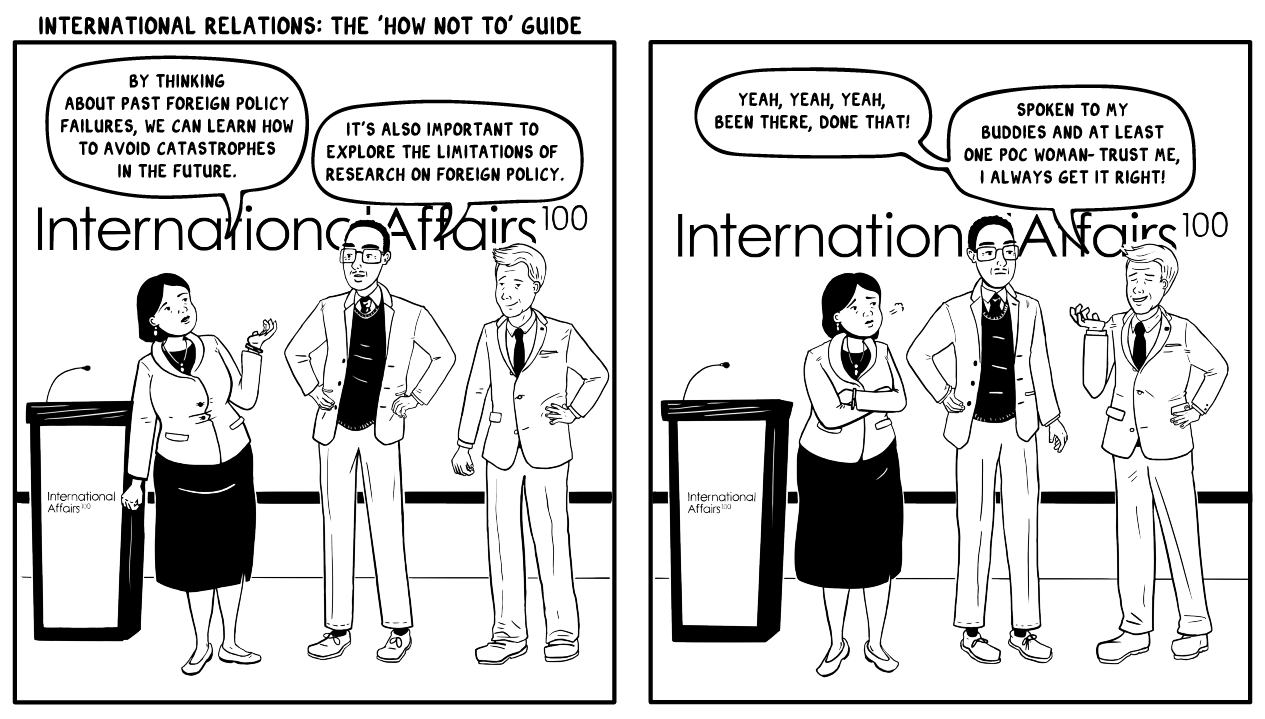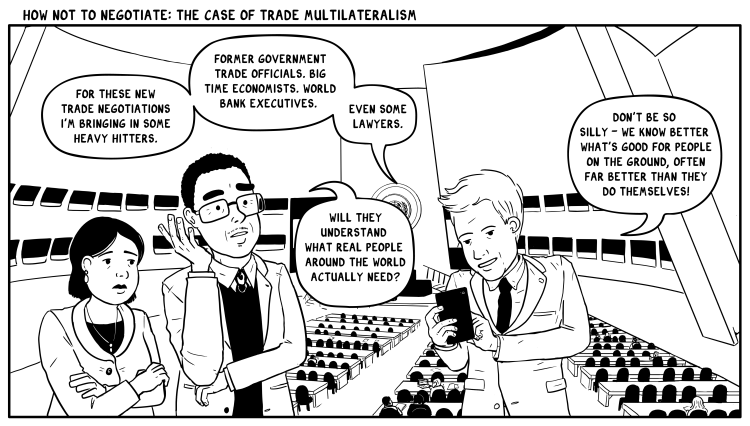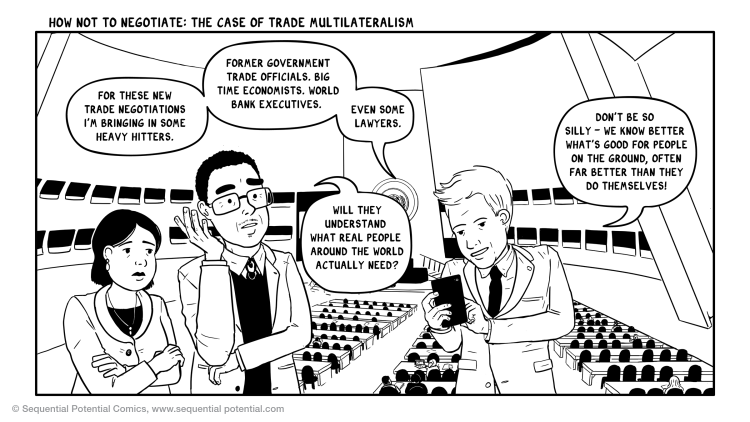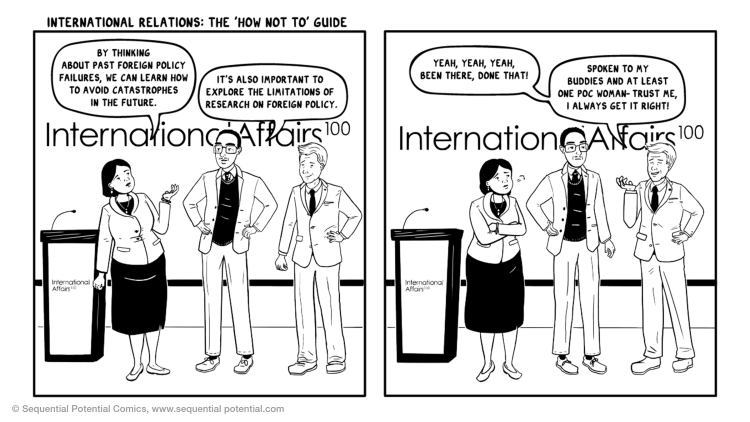- Home
- Publications
- Books
- International relations: the ‘how not to’ guide
Amrita Narlikar / Daniel Drezner
International relations: the ‘how not to’ guide
International Affairs | Oxford University Press | 2022
The International Affairs centenary special issue, edited by GIGA President Prof. Narlikar and Prof. Drezner, is a ‘how not to’ guide for international relations. It brings together 14 experts examining historic failures and how policy practitioners and researchers can get it right together.
Table of Contents
Daniel W. Drezner, Amrita Narlikar, International relations: the ‘how not to’ guide
Richard Toye, How not to run international affairs
Daniel W. Drezner, How not to sanction
Amrita Narlikar, How not to negotiate: the case of trade multilateralism
Harold James, How not to solve a financial crisis
Cecilia Emma Sottilotta, How not to manage crises in the European Union
Janice Gross Stein, How not to think like a hegemon
Joseph S. Nye, Jr, How not to deal with a rising China: a US perspective
Amitabh Mattoo, How not to deal with a rising China: a perspective from south Asia
Igor Istomin, How not to interfere in another country's domestic politics
Stephanie Carvin, How not to war
Valérie Rosoux, How not to mediate conflict
Yuen Foong Khong, How not to learn from history
Naazneen H. Barma, James Goldgeier, How not to bridge the gap in international relations
Editorial
Authors: Julia Kramer, Isabel Muttreja
Policy decisions in international relations frequently have a long-lasting effect on the world order, shaping the lives of millions. Often acting under pressure and severe time constraints, decision-makers must rely on their own experience and the best expertise available. And so, despite many striving for a more peaceful and prosperous world, policy failures are all too common.
The second of International Affairs’ centenary special issues – devised and guest-edited by Amrita Narlikar and Daniel W. Drezner – is a ‘how not to guide’ for international relations. Focusing on historic failures, 14 experts examine what went wrong, and how policy practitioners and researchers can get it right together.
Between theory and outcome fall two ‘shadows’: one of decision-makers not taking advantage of sound academic policy advice – in some cases ignoring it because they think they already know best – and a second of bias in academic analyses and researchers simply erring, or erring on the side of their own self-importance. Between these two, there lies a joint path toward better policies.
The special issue provides policymakers with cautionary lessons, transforming well-known cases into a guide of what not to do in international politics. Building on that, the collection also suggests ways forward, including borrowing the medical Hippocratic Oath of ‘do no harm’, which in international relations serves as a cautionary warning against action merely for action’s sake, and then going decidedly beyond this minimum requirement.
A series of comics also accompanies the articles, produced in collaboration with Sequential Potential comics.
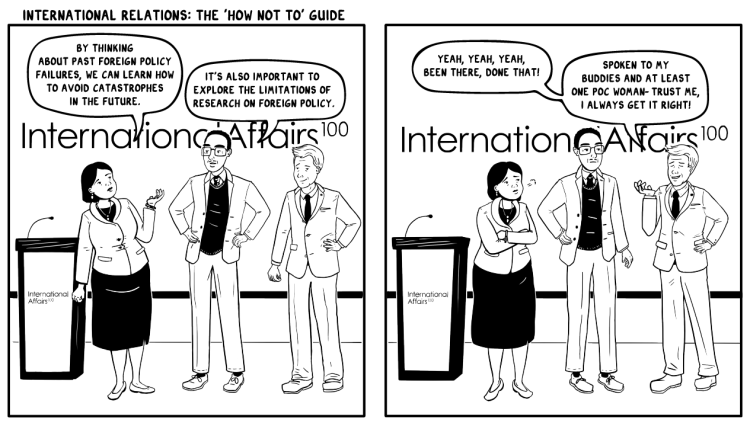
In their introduction, Drezner and Narlikar draw out four overarching factors which increase the likelihood of foreign policy failure – these are a focus on short-term successes, underestimating the power of narratives, hubris, and technocratic bubbles. If academics and policymakers can work together with these careful considerations, perhaps mistakes can avoid being repeated.
Richard Toye examines three pivotal moments in the UK’s history – the Munich crisis of 1938, the Suez crisis and war of 1956, and the Iraq war of 2003. He finds that in these cases the failures were over-determined, a consequence of Britain’s relative decline rather than its cause.
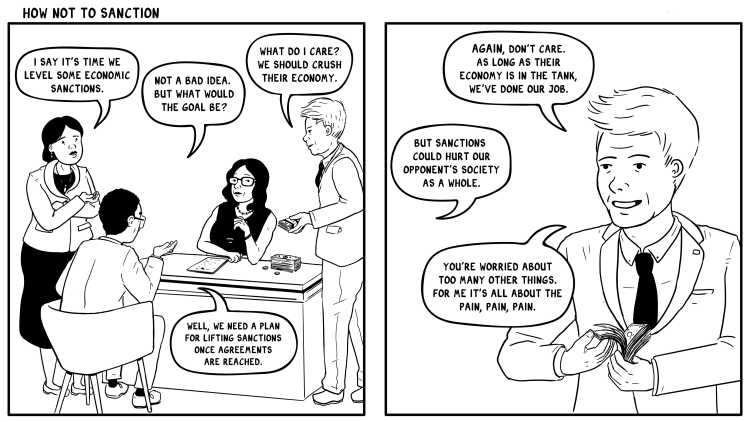
Daniel W. Drezner reviews two high profile failures of sanction use – United Nations (UN) sanctions on Iraq during the two Gulf wars, and the US re-imposition of sanctions on Iran in 2018. In both cases the main goals were not achieved and the costs were great. Drezner highlights ten ‘do’s and don’ts’ for sanctions as a result.
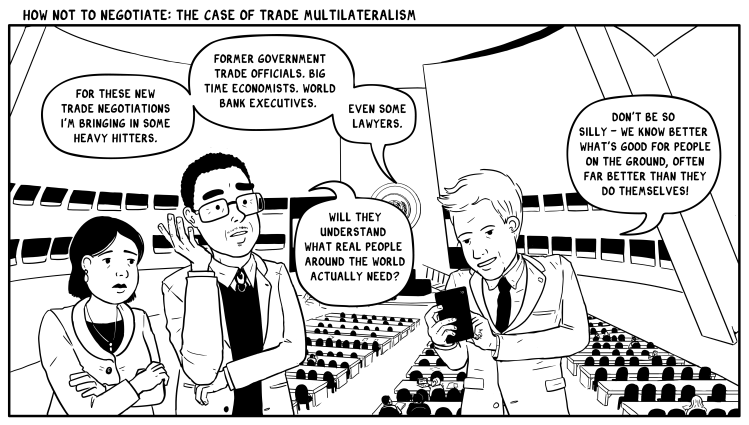
Amrita Narlikar shows how the World Trade Organization (WTO) has become an almost perfect example of how not to negotiate, even when taking into account recent limited successes. She identifies three broad categories of bargaining failures and explores the impact of narratives on the course of events, giving a clear list of do’s and don’ts for international negotiation. Harold James also looks at three historic moments, the financial crises in 1931, 1997, and 2008. While responses to the crises initially looked successful, ironically in each case the drive to avoid past mistakes opened the door for the next crisis. Cecilia Emma Sottilotta considers recent disasters in the European Union (EU) – the eurozone crisis and COVID-19 pandemic – and recommends for policymakers to find a middle ground between supranationalism and intergovernmentalism in crisis situations. The growth of Chinese influence is a key issue in international relations today. Various articles in the special issue explain how not to deal with a rising China, coming from different angles. Exploring the US-China relationship, Janice Gross Stein is critical of the narrative around US decline and Chinese growth. The world should look beyond GDP as an indicator of a country’s growth and pay attention to strategic choices made by leaders in both states. Joseph S. Nye Jr also provides a US perspective, arguing that while some historic analogies are misleading, the US should contemplate the cautionary narrative of sleepwalking into World War One when thinking about its relationship with China.

Amitabh Mattoo gives a south Asian view, asserting there is a need to understand Chinese policies in the region. Through examining China’s relations with India, Pakistan, and Sri Lanka he concludes that because China is adopting aggressive policies in the region, states must start cooperating with like-minded allies. Yuen Foong Khong answers two questions in his paper tackling which ‘how not to’s’ are relevant when learning from history, and whether policymakers are aware of them. His research points to four things to avoid, which he then applies to how the Cold War analogy is used to understand contemporary US-China relations. On the theme of foreign interference, Igor Istomin looks at the Soviet support for Mao Zedong’s Communist Party in the 1920s to 1940s. He argues strongly against interfering with major powers, as short-term gains cannot last.
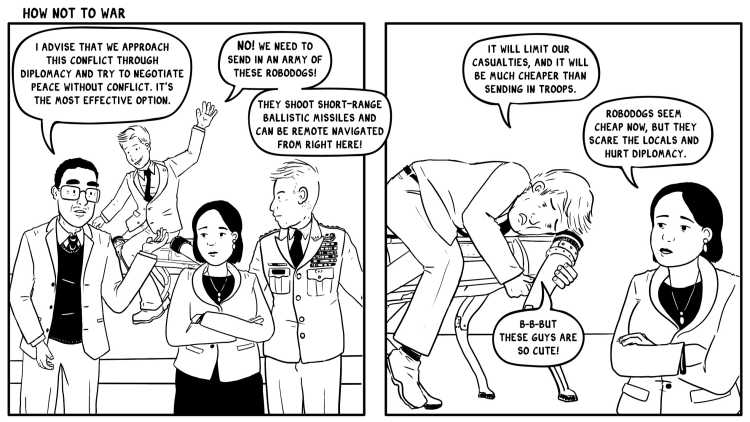
From Iraq and Afghanistan to Somalia and the Balkans, there have been many failed interventions by the West since the end of the Cold War. Stephanie Carvin asserts the overreliance on automated weaponry has allowed supposedly ‘easy wars’ to turn into ‘forever wars’ – and this is not likely to stop. Valérie Rosoux questions the use of mediation by third parties in post-conflict situations. Drawing on the case of Rwanda in 1994, she contends that while reconciliation is usually assumed to be the correct goal after a conflict, its moral and ethical implications must be properly analysed.

While many of the articles in this issue tackle the challenge of academic–practitioner relations, Naazneen Barma and James Goldgeier conclude the issue by focusing on this alone. To avoid pitfalls, they identify four ‘I’s – Influence, Interlocutors, Integrity, and Inclusion – which can mitigate the worst instances of falling prey to a cult of relevance in bridging the gap.
All articles mentioned above are part of the September 2022 centenary issue of International Affairs. The articles are free to download until 11 December 2022.
Regional Institutes
Research Programmes
Edition
5
Series
International Affairs
Series Number
5
Series ISSN
1468-2346
Series Volume
98
Publisher
Oxford University Press
Volume
98

